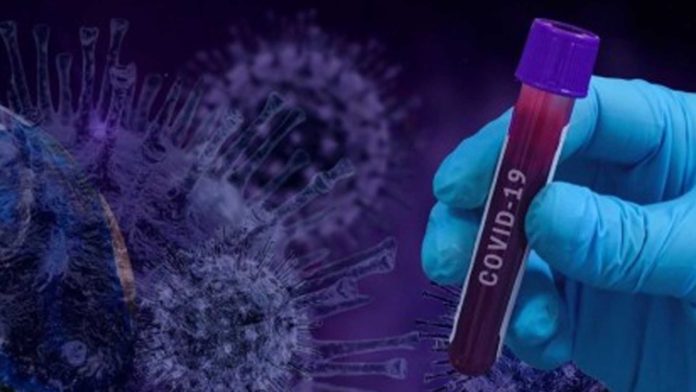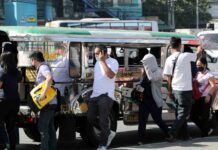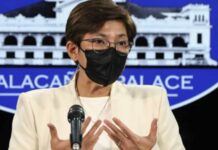Despite having the highest number of confirmed coronavirus disease (Covid-19) cases in Southeast Asia, a Palace official said on Thursday the Philippines is responding to the pandemic in the same way its neighboring countries are doing.
In a virtual presser, Cabinet Secretary Karlo Nograles defended the Philippine government’s response to Covid-19, saying that it is also implementing the best practices to curb the virus.
“In fact, if there is something that we learned doon sa summit namin sa Asean, pati iyong Asean Plus Three (during the Asean Summit and the Asean Plus Three) is that what we are doing here in the Philippines is also something that they are doing also in their respective countries,” he said.
Just like its neighboring countries, he said the Philippines also declared its own lockdown, travel restrictions, conducted mass testing, and is currently waiting for a vaccine to be developed.
Nograles said even if the Philippines had surpassed Malaysia as the country with the most Covid-19 cases, it should not be viewed as a competition.
“Hindi naman ito contest among Asean nations, di ba, hindi naman ito contest na pakontian ng number, hindi ganyan (This is not a contest among ASEAN nations, isn’t it? It’s not a contest on which country has the least number),” he said.
He said Filipinos should not be “disheartened” because the surge in the number of cases means that the government is working to beef up its Covid-19 response efforts.
The increasing number of Covid-19 cases in the Philippines, Nograles said, is a result of the expansion of the government’s testing capacity, capability, and implementation.
“Of course you’d be alarmed, but you don’t get disheartened if ang nakikita mo is, ‘oh dumadami tayo, oh mas malaki na tayo sa Malaysia o tayo na ang pinakamalaki sa Asean.’ If naman ang kapalit niyan is agad nating nai-isolate, agad natin tini-treat and agad nating napapa-recover (Of course you’d be alarmed, but you don’t get disheartened if cases are increasing and we have more cases than Malaysia or we have the highest cases in Asean because it means we can immediately isolate, treat, and help them recover),” he said.
As of April 15, health authorities reported a total of 5,453 confirmed Covid19 cases, 349 deaths, and 353 recoveries.
On April 14, US-based Johns Hopkins University’s data showed the Philippines has the highest coronavirus cases at 5,223 followed by Malaysia with 4,987 cases and Indonesia with 4,839 Covid-19 cases. Singapore has the fourth highest number of cases 3,252 followed by Thailand’s 2,643 and Vietnam’s 267 cases.
With the Luzon-wide enhanced community quarantine (ECQ) set to lapse on April 30, Nograles is hopeful that the government would be able to set up new guidelines for the “new normal.”
He urged the public to cooperate by observing guidelines under the ECQ, stressing that the government could not afford to have its efforts go to waste.
“The more na may mga pasaway (The more stubborn citizens), the more it becomes difficult to make the decision ‘di po ba (right)?” he said.
Nograles said it would be unfair for those observing the guidelines to suffer from the consequences of others’ refusal to do the same.
‘Stop being so stubborn’
Presidential Spokesperson Harry Roque, in a separate virtual presser, described the country’s tally on Covid-19 cases as “embarrassing.”
Roque scolded the public for failing to observe guidelines under the Luzon-wide ECQ.
“Ang dami pong pasaway sa atin. At dahil po diyan, number one na naman tayo sa Asean sa dami ng Covid-19. Nakakahiya po yan. Itigil niyo na po yung pagiging pasaway. Manatili kayo sa inyong mga tahanan (Too many of us are stubborn. And because of this, we’re number one in Asean in terms of Covid-19 cases. It’s embarrassing. Stop being so stubborn and stay at home),” he said.
He urged the public to be “homeliners” amid reports of traffic on the South Luzon Expressway (SLEX), stressing that citizens of other Southeast Asian countries strictly complied with their quarantine rules.
“Dapat tayong mga Pilipino mahiya dahil nagpapakita tayo na walang disiplina (We should be ashamed because we’re showing other countries that we don’t have discipline),” he said.
He, meanwhile, assured that more stringent measures to curb the spread of Covid-19 are currently being carried out, such as the targeted mass testing which started last April 14.
Nograles, earlier, said the government aims to reach its target of 8,000 to 10,000 Covid-19 tests per day by the end of April.
Health authorities consider the PCR-based test kits as the “gold standard” for diagnosing Covid-19 infections. On the other hand, rapid antibody test kits are faster but give less accurate results.
On Monday, President Rodrigo Duterte ordered the “immediate” purchase of rapid antibody test kits to boost government capacity to respond to the Covid-19 pandemic.
Duterte directed the Department of Health, in coordination with its technical advisory group, to finalize guidelines for the supplementary utilization of rapid antibody test kits which have received approval from the Food and Drug Administration (FDA). (PNA)





